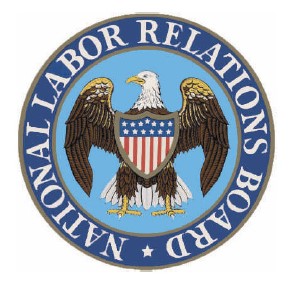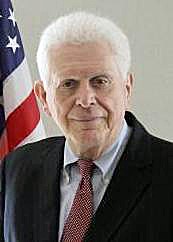Article
Under New Management: Turning Over a New Page
The Trump-era National Labor Relations Board takes shape
 After the election of President Donald Trump, the NLRB is operating under a new, management-friendly philosophy, which now has an opportunity to advance labor reform on behalf of America’s employers and working people. Credit: National Labor Relations Board. License: https://goo.gl/LGCCsm.
After the election of President Donald Trump, the NLRB is operating under a new, management-friendly philosophy, which now has an opportunity to advance labor reform on behalf of America’s employers and working people. Credit: National Labor Relations Board. License: https://goo.gl/LGCCsm.

Read the last installment of “Under New Management” here, and the first installment here.
Summary: After the Obama administration’s “Card Check Bill” pushed by the left wing of the Democratic Party and Big Labor collapsed, President Donald Trump’s NLRB has an opportunity to advance labor reform on behalf of America’s employers and working people.
General Counsel
Obama NLRB General Counsel Richard Griffin will be replaced by management-side labor lawyer Peter Robb, who was confirmed by a 49-46 Senate vote on November 8. Robb previously served as a legal aide to Robert P. Hunter, a Republican Member of the NLRB from the Reagan era.
But Robb is not an ordinary management-side labor lawyer. In 1981, he was an attorney with the Federal Labor Relations Authority when that agency conducted the litigation surrounding President Ronald Reagan’s decision to fire striking air traffic controllers who were members of the Professional Air Traffic Controllers Organization labor union. As everyone remembers, Robb and the FLRA won the case. The controllers’ strike was deemed illegal, a seminal victory for conservatives and free-marketers during the Reagan Revolution. The left-wingers at In These Times fear Robb, rightly believing his Reagan Administration experience means he will take an aggressive posture defending employers against labor unions. His appointment signals a massive shift for the agency after four years under the guidance of a “chief prosecutor” who was an in-house counsel to a major union.

Marvin Kaplan. Credit: NLRB License: https://goo.gl/d6eQqK.
Outlook
When Robb is sworn in, the NLRB will enjoy a 3-2 Republican majority and a General Counsel committed to balancing union, worker, and employer rights. Hopefully, the bad old days of blatant NLRB advocacy for the agenda of the SEIU and other labor unions are over. Chairman Miscimarra has said that he hopes to clear as many current cases as possible before his term expires.
Reversing the damage caused by the NLRB’s Obama-era agenda will take time. Miscimarra’s retirement means there will be a confirmation fight over his replacement.
But once a new General Counsel and a full slate of members are seated, there is reason to believe that the NLRB will turn a new page in its history. We may look forward to efforts to reverse the Browning-Ferris joint employer standard, the Specialty Healthcare micro-union rules, and other more technical rulings that increased union privileges at the expense of worker and employer rights. Still, procedural hurdles might be difficult to jump; true reform could be years away. Likewise, efforts to reverse the ambush elections rules will require notice-and-comment rulemaking, delaying their implementation.
And sadly any improvements in the climate for workers and employers could be reversed by the “pen and phone” of the next NLRB in the hands of a Democratic majority beholden to Big Labor. This disturbing possibility has led Congress and activists to consider more permanent ways to constrain the actions of the flip-flopping regulatory agency. But that is tomorrow’s business. Today, the House of Representatives is considering a measure with bipartisan support that would reverse Browning-Ferris and codify the reversal in law. The Save Local Business Act would set the pre-Browning-Ferris “direct control” standard and apply it across federal labor law.
Other proposals favor a broader reform of labor law, which would curtail the NLRB’s regulatory and interpretive discretion. The Employee Rights Act would give workers more rights exercisable against abusive labor unions, including opt-out protection from having personal information disclosed in organizing campaigns. The bill would also change the majority support threshold, require periodic “re-certification” of unions, and guarantee secret ballot elections—killing card check for all private-sector workplaces.
Limited changes are also being considered: The Workforce Democracy and Fairness Act would set a 35-day minimum period from the filing of an election petition to the holding of an election to reverse the ambush elections rule and establish a consistent, fair unionization election campaign period. The bill would override Specialty Healthcare and prohibit micro-unions.

Marvin Kaplan. Credit: NLRB License: https://goo.gl/d6eQqK.
Conclusion
For eight years, the National Labor Relations Board has used “pen and phone” tactics to advance a Big Labor agenda. Goaded by the Obama administration’s failure to put over a variety of pet labor laws, the NLRB has pursued a kind of guerilla campaign to pass the Card Check Bill, Labor’s number one post-2008 election priority. But now, with new management at the NLRB, a much-needed balance is returning.
Now, for the first time in nearly a decade, the nation’s most important adjudicator of labor-management disputes will no longer be pressing its thumb down hard on the union side of the scale.


